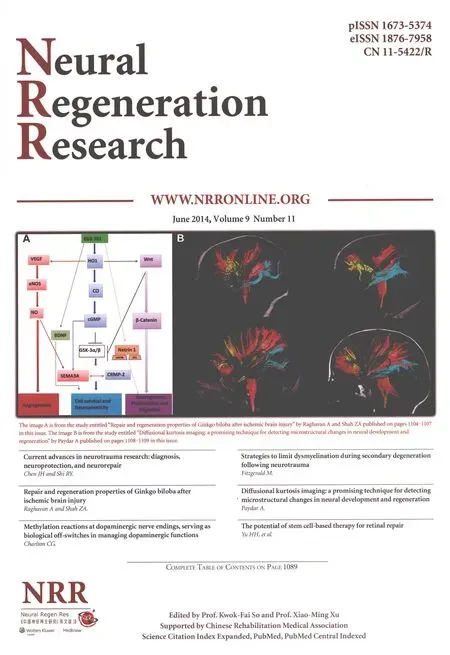中国神经再生研究(英文版)
- Current advances in neurotrauma research: diagnosis, neuroprotection, and neurorepair
- Strategies to limit dysmyelination during secondary degeneration following neurotrauma
- The potential of stem cell-based therapy for retinal repair
- Repair and regeneration properties of Ginkgo biloba after ischemic brain injury
- Diffusional kurtosis imaging: a promising technique for detecting microstructural changes in neural development and regeneration
- Methylation reactions at dopaminergic nerve endings, serving as biological off-switches in managing dopaminergic functions
- Melatonin reduces traumatic brain injury-induced oxidative stress in the cerebral cortex and blood of rats
- Neuroprotective effect of ischemic preconditioning in focal cerebral infarction: relationship with upregulation of vascular endothelial growth factor
- Potential targets for protecting against hippocampal cell apoptosis after transient cerebral ischemiareperfusion injury in aged rats
- Heavy ion and X-ray irradiation alter the cytoskeleton and cytomechanics of cortical neurons
- Somatosensory stimulation suppresses the excitability of pyramidal cells in the hippocampal CA1 region in rats
- A viral vector expressing hypoxia-inducible factor 1 alpha inhibits hippocampal neuronal apoptosis
- High matrix metalloproteinase-9 expression induces angiogenesis and basement membrane degradation in stroke-prone spontaneously hypertensive rats after cerebral infarction
- Acupuncture at the Taixi (KI3) acupoint activates cerebral neurons in elderly patients with mild cognitive impairment

